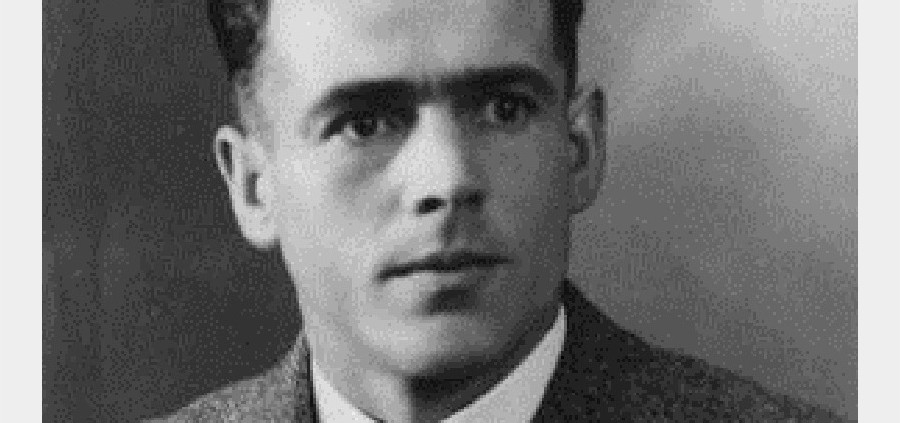The Cost of Discipleship: A Review by Chris Byrd
A Hidden Life
Directed by Terrence Malick
Written by Terrence Malick
Fox Searchlight
PG-13 179 minutes
Exquisitely rendered, the stunning new film from acclaimed writer and director Terrence Malick, A Hidden Life, recalls recalls World War II–era Austrian martyr Blessed Franz Jägerstätter’s (August Diehl) exceptional gospel witness—which, as the title suggests, has been obscured for too long. Executed by the Nazis, Franz was beatified by Benedict XVI in 2007.
The film derives its title from 19th-century British author George Eliot’s novel Middlemarch. “That things are not so ill with you and me,” she wrote, “as they might have been, is half owing to the number who lived faithfully a hidden life, and rest in unvisited tombs.”
In 1939, when viewers first encounter Franz, the farmer lives anonymously but happily in the Austrian village of St. Radegund. His fiercely devoted wife Fani (Valerie Pachner) describes their bucolic existence with their three young daughters: “How simple life was then. It seemed no trouble could reach our valley. We lived above the clouds.”
Germany’s annexation of Austria irrevocably disrupts the family’s peace. Germany requires all able-bodied males to be conscripted to fight for and to swear an oath of fealty to the Nazi regime, much to Franz’s consternation.
The village’s Catholic parish’s sacristan expresses his concerns to his pastor Father Fürthauer (Tobias Moretti). “What’s happened to our country?” Franz says. “We’re killing innocent people, raiding other countries, preying on the weak.” The priest arranges for his parishioner to visit with Bishop Fliesser (Michael Nyqvist) of Linz, who counsels the farmer: “You have a duty to the fatherland. The church tells you so.” Franz nonetheless remains determined not to fight, which turns him and his young family into town pariahs. The villagers understandably resent Franz’s staying out of the fray when their family members must fight.
Deferments granted to farmers spare Franz until 1943, when he’s compelled to report to Austrian town of Enns. There, Franz refuses to take the Hitler oath. Imprisoned and transferred to a Berlin prison to await his trial, Franz is sustained throughout his dark ordeal by exchanging letters with Fani.
A Hidden Life admirably challenges the viewer to enter fully into Franz’s stark sign-or-die dilemma. Franz feels he must stand up to evil of the nativism, which Hitler’s twisted philosophy inflames in his countrymen. Disturbingly ascendant today, these views are embodied in the town’s mayor, Kraus (Karl Markovics). “You cannot say no to your race, your home, you are a traitor,” he says to Franz.
Viewers will refer to an earlier moment to understand Franz’s motivation. In his parish, he meets a painter named Ohlendorf (Johan Leysen). Ohlendorf acknowledges he paints “comfortable” Christs, but in reality, Ohlendorf says, “Christ’s life is a demand.” That imperative guides Franz’s refusal.
Franz’s priest, his lawyer Feldman (Alexander Fehling), and Fani appeal for his life and plead with him to sign, but Fani astonishingly says, “Whatever you do, whatever comes, I am with you, always.” To describe what the couple endures as gut-wrenching doesn’t do it justice. As the one left behind, Fani’s pawing the earth when she learns of her husband’s fate will linger in viewers’ consciousness.
Our personal connection to these characters implicates us in the film’s vexing questions. Was Franz selfish or heroic? Would we sign an oath which violates our conscience to save our skin and spare our family? Are we doing enough to resist evil? And what, finally, does Christ’s life demand from us?
A Hidden Life is the enigmatic 76-year-old director’s tenth feature film. After his widely acclaimed early films Badlands (1973) and Days of Heaven (1978), Malick didn’t make another film for 20 years. Beginning with 2011’s Tree of Life, the five films he released prior to this were marred by self-indulgent imagery, which overwhelmed incoherent narratives.
Here, the director curbs his worst excesses. Helping us to see the old anew—a deeply attached couple clasping hands, dark clouds gathering over a mountain—Malick’s visuals amplify the life-or-death narrative upending domestic tranquility.
Distinguished by Jörg Widmer’s breathtaking cinematography, James Howard Newton’s magnificent musical score, the leads’ natural magnetism, and Malick’s poetic script, A Hidden Life is more than the director’s return to form. Malick’s admirers have longed, for more than 40 years, to see this undeniably powerful and astonishingly grace-filled film.
Chris Byrd writes from Washington, D.C. His work has appeared in America, Sojourners, and the National Catholic Reporter.





Leave a Reply
Want to join the discussion?Feel free to contribute!